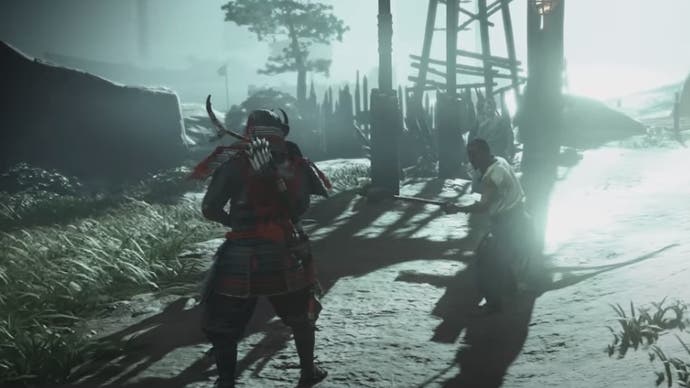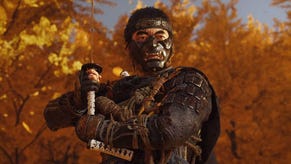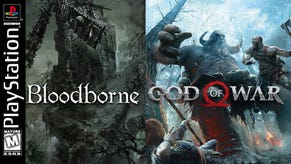Seeking alternatives to revenge narratives in games
Let it go.
Recently, I finally had an opportunity to play Sucker Punch's samurai epic Ghost of Tsushima, and its story of the Mongol invasion of Japan made me think about the way games treat revenge. At the heart of it, waging war is taking revenge, a form of payback for an injustice committed to you. By challenging the concept of bushido, the idea there is an honorable way to fight war, Ghost of Tsushima basically affirms that in order to get even with someone, you sometimes have to fight dirty, something that's intrinsically much closer to our actual idea of revenge. Revenge is when the gloves come off. Paradoxically however, while the game takes a lot of effort in showing how its hero Jin takes no pleasure in sneaking around and using underhanded methods, they all feel very good to play.
Revenge is a popular tool in games, simply because so many of them rely on combat as their main mechanic. Many ways in which combat is integrated can feel slightly disconnected from what's going on - think of JRPGs, where the fauna and flora out for your hide is just an unexplained fact of the world. Violence with the motive of revenge is much more goal-oriented, and it can feel as if we're in the right. The player who identifies with a protagonist wants to see their goals fulfilled, after all. In his book "Into the Woods - How Stories Work And Why We Tell Them", John Yorke explains that each story needs inciting moments, and revenge is an example of one such moment: a character happily lives their life until they become the victim of an injustice, so they set out to correct it by showing their new foe what's what.
Revenge gives us a clear motive, an antagonist and, in the case of games, a justification for violence, and it works surprisingly well mainly because we as humans can sympathise with the hankering for revenge. We may not dream of taking an axe to someone, but who hasn't dreamed of getting back at someone in some way? In games, revenge is always portrayed as a process that hardens a previously happy and satisfied person, both in body and mind. It's very often a male-coded process, too - a male protagonist losing the elements in his life that softened him, that tethered him to a normal social life, like family or a spouse. Examples for that include Max Payne and The Darkness, or Red Dead Redemption. Breaking a bond of loyalty between brothers, like in Mafia 3, Red Dead Redemption 2 and Modern Warfare 2 and 3 is also a common motive.
Of course there are also revenge stories featuring women, think of Jack in Mass Effect 2, whose character arc is a good example of what we usually hope revenge will bring us: if you help Jack, she will finally find closure and move on with her life to help others. In reality however, that's actually not how it works. Studies have shown that the more time you spend on making elaborate plans for revenge and the more time you spend following through, the worse it's going to feel when you get what you want - both because you've been hyper-fixated on a negative presence in your life for a long time, and also because it can be difficult to lose that easily identifiable foe.
This is what The Last of Us 2 is trying to illustrate. It's very effective at showing that revenge is a circle - Abby, the person who gets their revenge, has to watch their back from then on, as their actions have caused them to make an enemy out of Ellie. Unfortunately, it takes a lot of violence for either of them to learn that revenge is ultimately unsatisfying, and as the player enacting that violence, having been told over and over by games that this should be a satisfying process, you can end up oddly dissatisfied, as well. Additionally, for me at least the feeling of violence itself wasn't horrifying in the way Naughty Dog intended. Still, as ever, the act of finishing a confrontation felt good, perhaps even more so than in other games because it felt a lot more hard-won due to the gritty way combat was presented.
The simple solution then, could be to let go of combat entirely, and many games are doing that already. But I think the problem by now goes deeper. We've gotten used to combat. Often we want combat, but it's the way combat is presented, as an ultimately mechanically satisfying revenge fantasy, that isn't good for us - it makes us think someone has to win, someone has to be in the right.
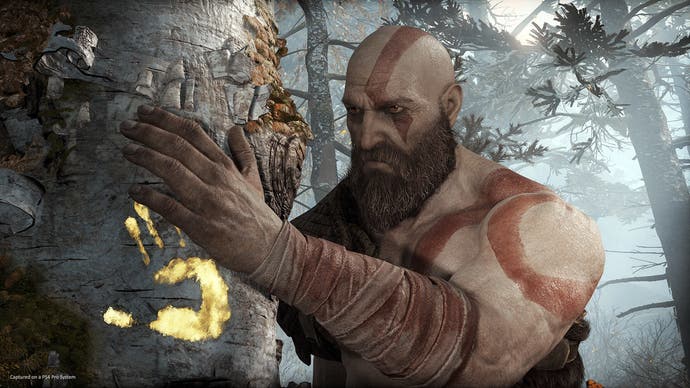
So the games I really appreciate are those who try to reckon with that feeling in a way that doesn't punish players for engaging in the only action they have. The best game I have played to that effect has to be the 2018 God of War, which describes the dilemma of the vicious circle of revenge perfectly. The way you act here is certainly vicious, but it is with awareness that even the one who acts in defence isn't right - there are no winners, and God of War shows this by allowing its characters on both sides of the equation time to mourn and to apologise to those left behind. It shows that the hardened warrior isn't just a cool trope, but a deeply flawed, sad being. In the Last of Us 2, Ellie wants to win - by comparison, Kratos really just wants to be left alone.
Another great example for this measured approach to revenge is Four Quarters' recent indie smash hit Loop Hero. Loop Hero's gameplay was created before the story was, and since the game wasn't primarily about fighting, its story shouldn't be, either, as composer, sound and game designer binch, alias Aleksandr Goreslavets, puts it. "It didn't feel natural to us to create a story about taking revenge on monsters considering that the game revolved around putting monsters in the hero's way.
"Secondly, the player only restores the land, and hopes that the Hero will handle the side effects as they remember the world. Therefore, we knew right away that the main character's goal should be to restore peace, not to kill the villains or monsters."
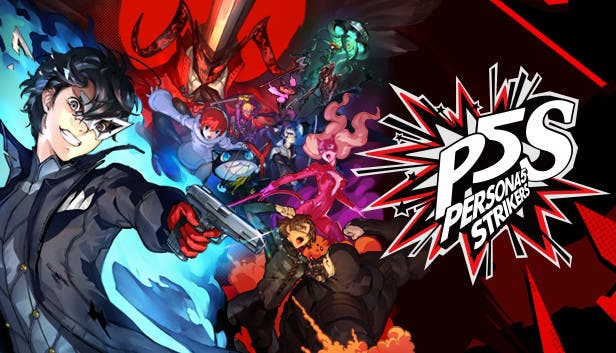
You're trying to recreate the world as it was, and while its three bosses are trying to stop you, fundamentally what you're doing is not about them - your hero has to accept monsters as part of the ecosystem.
A common way to break a revenge cycle in games is to see it as something villains do. Take Persona 5 Strikers - Joker and his group of friends only get involved in other people's quest for revenge because revenge, like war, tends to involve innocent people. Here, your task is to be a third party with no stake in the matter who can show the Monarchs the errors of their ways, usually by delivering a sound beating followed by a long chat. It's an option, but it isn't as nuanced as actually involving the characters in question the way God of War does.
These examples show that revenge narratives in games can move past the black and white of a hero fighting a villain, but too many of them are still based on the idea that we need to feel like we're winning something. I think that if games learned to "shoot first and ask questions later" less, it would lead to more nuanced stories, and a greater awareness of the violence they entail.
